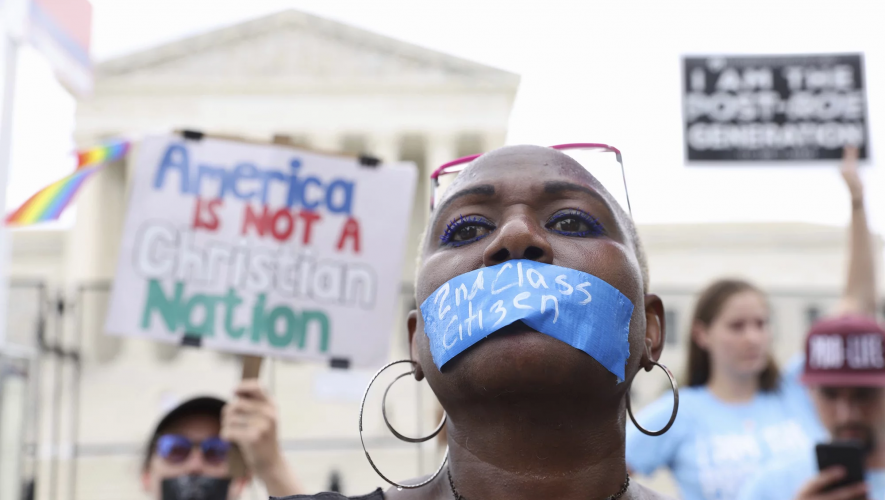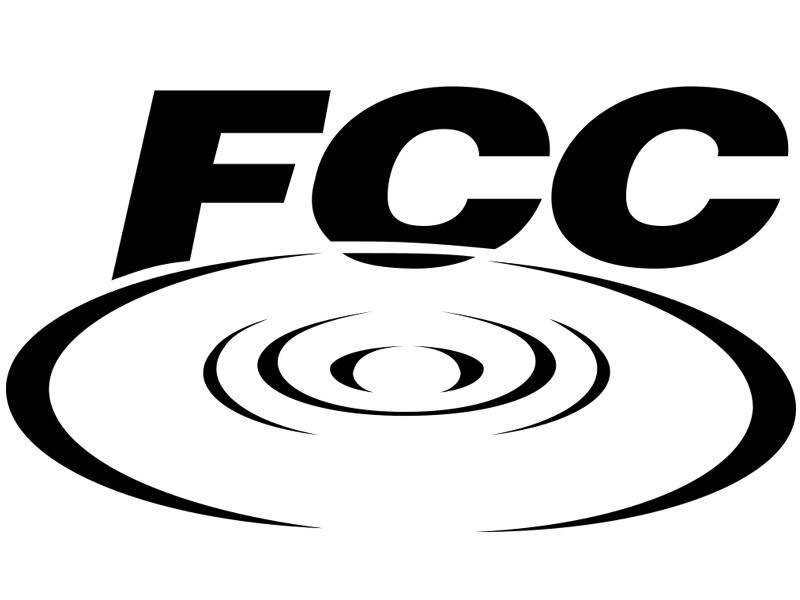In a post Roe v. Wade world, the Supreme Court has shown a clear push for a society that reflects conservative values. This shift started under the presidency of Donald J. Trump, who nominated enough GOP-aligned justices to create a conservative majority of six to three on the Supreme Court. Since Trump and Republican-led efforts to shift the Supreme Court’s political affiliation, their chosen justices have presided over controversial cases like Dobbs v. Jackson Women’s Health Organization and their legislators moved to enshrine conservative ideology in law.
With Roe v. Wade overturned by Dobbs v. Jackson, citizens now have even more to lose as justices like Clarence Thomas have renewed attacks on precedents and legislation around LGBTQ+ and contraceptive rights. In his opinion after overturning Roe v. Wade, Thomas stated that they “should reconsider all of this Court’s substantive due process precedents, including Griswold, Lawrence, and Obergefell,” cases that expanded LGBTQ+ and contraceptive rights, clearly demonstrating the degradation of a once progressive society.
While as of now, Griswold, Lawrence, and Obergefell are not on the Supreme Court docket, the cases reviewed in October 2022 could substantially increase the conservative hold on present-day politics. This fall, Merrill v. Milligan (and Merrill v. Caster), 303 Creative LLC v. Elenis, and Moore v. Harper reflect the power of the Supreme Court to impose a more aggressive enforcement of the GOP agenda.
303 Creative LLC v. Elenis
303 Creative LLC v. Elenis could enshrine the harmful rhetoric touted by many conservatives today: that discrimination is a protected first amendment right. Lorie Smith, a Colorado-based specialized web designer, brought the case before the courts claiming that being compelled to create same-sex wedding websites violates her freedom of speech. Smith’s argument is that underneath the first amendment, her right to speak or stay silent —a clause within Colorado state legislation that protects an individual’s autonomy to choose to speak or not—is being infringed. In other words, she should be able to refuse service to people who she believes violate her Christian beliefs.
However, as the district and Tenth Circuit courts affirmed, her claim clearly violates the fourteenth amendment and Colorado’s antidiscrimination laws, causing Smith to lose both of her suits. The courts believe that due to her website’s specialization, turning away same-sex couples because it does not fit with her “message” clearly diminishes the opportunities for same-sex couples. This is because they cannot receive comparable services to heterosexual couples, leaving them a “disfavored group.”
Rejecting the rights of the LGBTQ+ community based on “personal issues” with their sexual orientation when it’s directly protected under anti-discrimination laws clearly infringes upon legal precedent. Nonetheless, the escalation of this case to the Supreme Court could wreak havoc on the rights of LGBTQ+ individuals. If Smith wins the case, it creates a clear, dangerous, and discriminatory precedent against the LGBTQ+ community. Thus, the Supreme Court, with this case, could open the floodgates of infringing upon human rights, like Justice Thomas aims to do with Obergefell.
On the current Supreme Court, conservative justices Thomas and Alito dissented in Obergefell and have infamously remarked that LGBTQ+ behaviors contradict their religious beliefs. In their opinion of Obergefell, justices Thomas and Alito attacked the decision to allow same-sex marriage on the basis that it would “vilify those with…religious beliefs.” They believe that marriage is a “sacred institution between one man and one woman.”
For justices Barrett and Kavanaugh—who were nominated by Trump, who attacked nondiscrimination protections for the LGBTQ+ community—it is clear where their political allegiances lie. These judges show a clear bias against the LGBTQ+ community and empathize with religious plights like those given by Smith, so 303 Creative LLC v. Elenis‘s future outcome is only too apparent.
Merrill v. Milligan and Merrill v. Caster
This October, the Supreme Court will vote on Merrill v. Milligan (and Merrill v. Caster), which will decide whether they will continue to allow conservative states to implement racist gerrymandering strategies within their redistricting plans. In 2021, Alabama released its new congressional redistricting plan, claiming to better represent the state’s population in voting districts. However, it was apparent that the plan’s conservative creators had a racist political agenda, as many Black voting populations, like in Montgomery and Birmingham, were separated to become a minority in other voting districts.
This plan shocked its Black constituents, who are 27 percent of Alabama’s population, as they asked for the redistricting plan to contain two Black-majority districts, which would have represented the population. Instead, within their lawsuit, Milligan and Caster claim that the plan only aims to separate Black majority districts, in turn suppressing Black voting power in electing a representative. As 80 percent of Black voters in Alabama are Democrat-leaning, it is clear that this gerrymandering tactic aims to lessen the Democratic vote and affirm a conservative majority. Nevertheless, Alabama still maintains that the 2021 redistricting plan aimed to be “race-neutral” and contain no more than one majority-minority district, comparable to other redistricting plans.
In an effort to correct this racist gerrymandering, a coalition of civil rights groups and voters sued the Secretary of State and the state’s legislative redistricting committee. The lawsuit aimed to make sure that the redistricting plan was corrected to be representative of the population in time for the 2022 election. Despite the courts maintaining that the 2021 redistricting plan is illegal and racist gerrymandering in violation of Section 2 of the Voting Rights Act, the Supreme Court issued a stay order of the original opinion by 5–4 on February 7, 2022. The stay order allowed the racist redistricting plan to be utilized in the 2022 elections, undermining the Black vote. The Supreme Court will now determine the outcome of voting rights in Alabama, which is deeply troubling for democracy in the state and the nation.
In essence, the 2021 Alabama redistricting plan separates the Black majority in 2 districts within the Montgomery and Birmingham areas for one reason: to maintain a GOP majority. This plan is directly detrimental to Black voters, who are disproportionately affected by conservative legislation like those concerning contraceptive rights, and continue to be oppressed by the state.
Moore v. Harper
In an extreme gerrymandering case, North Carolina is under fire for creating an illegal redistricting congressional map, which was proven to be a statistical outlier favoring conservatives compared to most redistricting maps. While the courts agreed it was an egregiously manipulated map, two conservative state legislators asked for a stay by the Supreme Court based on the independent state legislator theory. The independent state legislator theory proposes that state courts and governors no longer will have the ability to check the state legislature, allowing the legislature to run elections with no interference. The court denied the stay, but the concern for this case does not rest solely on the illegal gerrymandering, but the escalation by inducing the independent state legislator theory. The independent state legislator theory threatens American democracy to an unprecedented level as it aims to give state legislators all power in federal elections.
As mentioned in the last case, Merrill v. Milligan (and Merrill v. Caster), gerrymandering to favor either the conservative or Democratic vote has become increasingly common, undermining the integrity of the American democratic system. The independent state legislator theory is dangerous to the election process and allows illegal practices to go unchecked at the state level, disrupting the basis of our constitutional democracy. While the case for the independent state legislator theory is weak, as it is incompatible with the constitution, allowing for it to be presented at the Supreme Court because of its legal merit is worrisome for American democracy.
The Conservative Agenda
If anything is to be deducted from these cases, it’s that the American governmental system has seen a fissure, harming the integrity of American democracy. The Supreme Court, since gaining a conservative majority, has overstepped into the autonomy of the legislative and executive branches. This is seen in their immense push to implement conservative values into every aspect of citizens’s autonomy, like the freedom to vote and one’s privacy in their own home. In essence, the ability of the Supreme Court to fast-track the conservative agenda, as seen in Dobbs v. Jackson, has created a “slippery slope,” allowing Justice Thomas to lay the groundwork for stripping LGBTQ+ and minority rights.
The erosion of minority rights in racist redistricting laws, like seen in Merrill v. Milligan (and Merrill v. Caster) and Moore v. Harper, are only the first of cases taken by the Supreme Court to enforce a conservative majority in states by separating minority Democrats. Additionally, allowing discrimination against LGBTQ+ individuals when accessing goods and resources pushes the conservative agenda of legally privileging nuclear families. Thus, these three cases reviewed this October threaten the very livelihoods of many citizens. While landmark cases like Obergefell, Griswold, and Lawrence are not yet on the chopping block, the apparent downslide of the Supreme Court into enforcing conservative values on the entire nation may jeopardize these cases and the fundamental civil rights they uphold.



